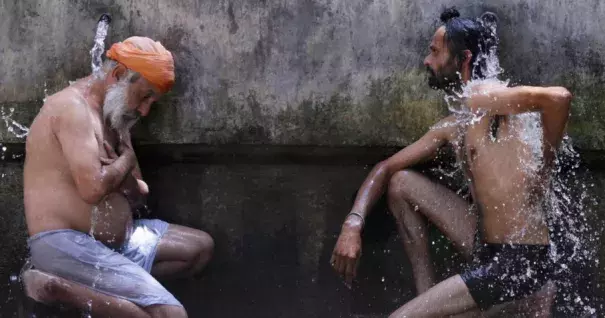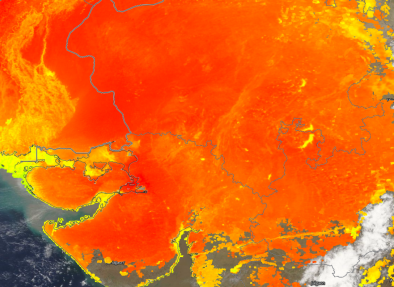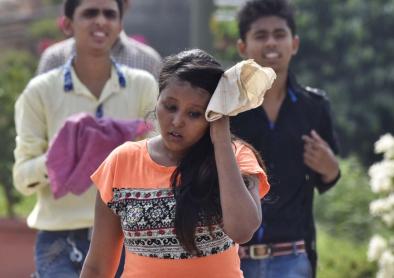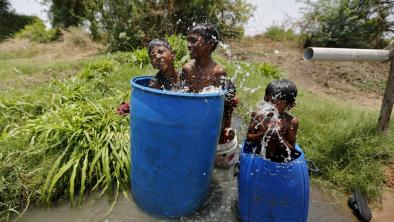Halfway to Boiling: Indian Heat Wave Sets Record Highs

The city of Phalodi, about 640 kilometers (400 miles) west of New Delhi, recorded a Thursday high of 51 degrees Celsius (124 Fahrenheit) — the country's all-time hottest, topping a previous record in 1956, according to Indian news outlets,,,
"That kind of extreme heat is not only an inconvenience, it kills people," said Kim Knowlton, deputy director of the Natural Resources Defense Council's Science Center.. In addition to the higher risk of heatstroke, people with heart and lung ailments are under increased stress as the body works overtime to cool itself off. And people with kidney trouble can find themselves at higher risk of dehydration, she said...
"May is typically the hottest month, but it's a double whammy — a triple whammy when there's the drought," she said. "This really compounds the challenge to people in India, millions of them, who don't always have the economic resources to get out of harm's way."
Problems like those seen in the past two years are becoming more likely in a changing climate. Without action to rein in carbon emissions, India is likely to see a sharp drop in crop yields due to extreme heat, changes in rainfall and shrinking groundwater, the World Bank projected in 2013. More than 60 percent of the country's farms depend on rainfall, making them "highly vulnerable to climate-induced changes in precipitation patterns."
"When crops fail in India, people perish," Knowlton said. "It's not just a matter of economics, as it may be in other parts of the globe. These are public health issues. The more we can do to stabilize the climate and not disrupt it more via climate change, the better off we'll be"
Related Content





